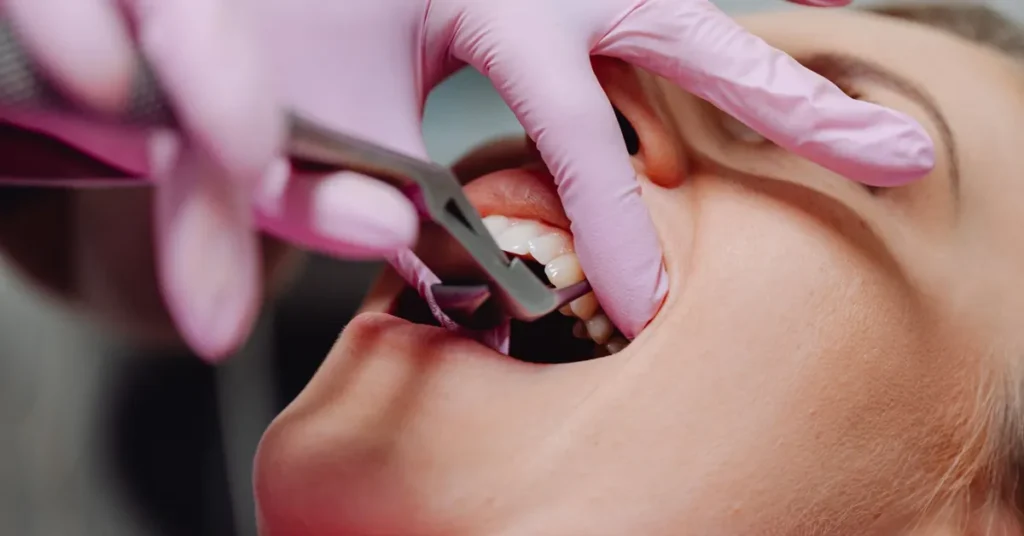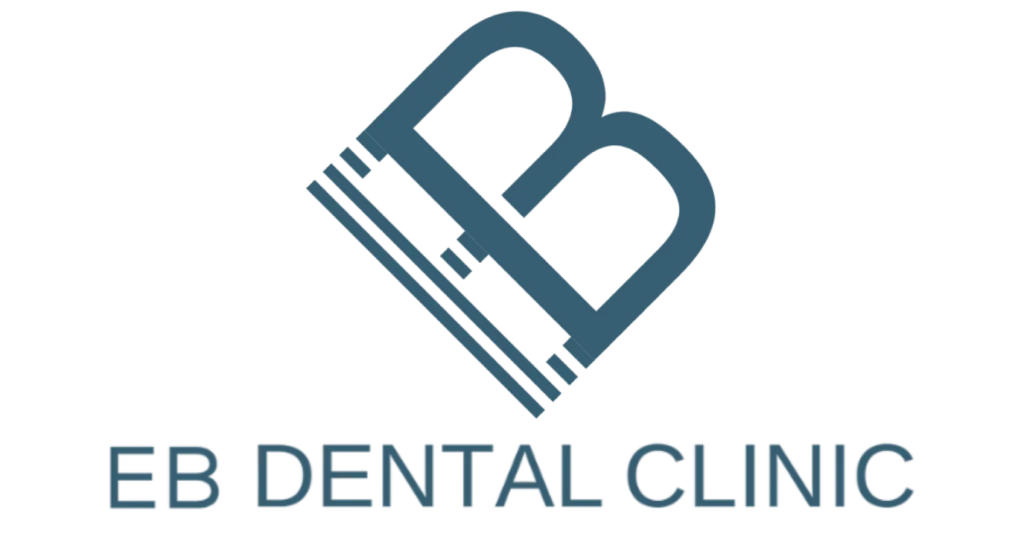Our Services
Our Contact Information
- Nisbetiye, Fecri Ebcioğlu Sk. No: 3E, Beşiktaş/İstanbul
- +90 544 152 34 34
- infodental@eb.clinic
- Monday / Saturday: 9:30 / 19:00
Tooth Extraction

Tooth Extraction
Tooth extractions may be necessary in cases where teeth and surrounding tissues do not respond to treatments for various reasons. Tooth extractions can be performed in a controlled manner based on predictions such as preventing unwanted conditions like infections in the future, protecting surrounding tissues, and allowing restorations to be made with new treatments.
What is Tooth Extraction?
Tooth extraction is the removal of unhealthy teeth that have lost their biological or functional harmony with surrounding tissues from the oral cavity using compatible equipment and planning. After it is determined through X-rays and intraoral scans that restoration of the tooth is not possible, the teeth can be safely removed from the dental socket, allowing for the healing of surrounding tissues. Before the extraction decision is made, surgeons evaluate the dental socket and surrounding tissues in three dimensions using intraoral digital scanners, enabling the planning of prosthetics or restorations after the extraction.
How is a Tooth Extraction Performed?
After deciding to perform a tooth extraction, general examinations of the oral cavity and overall health assessments, known as anamnesis, are completed, along with evaluations of any existing systemic diseases. Local anesthesia suitable for the area where the extraction will take place is administered, ensuring that no pain will be felt during the procedure. The tooth to be extracted is loosened with specially selected dental instruments and removed from the bony socket known as the alveolus. Afterwards, surrounding tissues are re-examined, and the surgeon thoroughly cleans the area with specialized tools to eliminate any potential infection. Once bleeding control is fully achieved, X-rays are taken to check the surrounding tissues and the tooth socket again. Special packing is placed in the area of the tooth socket to control bleeding, protect the area from infection, and aid in the healing process.
When Can a Tooth Extraction Be Performed?
There are many reasons for tooth loss, but the most commonly known reason is that the teeth have lost too much substance to be restored due to decay or dental trauma. In cases where the presence of infections has compromised the health of surrounding tissues, a decision for tooth extraction may be made in this irreversible situation.
Another reason could be when existing gum diseases have progressed to a point where the teeth can no longer anchor to the surrounding tissues, leading to a decision for tooth extraction to eliminate infections and allow for new restorations.
During orthodontic treatments, extractions may be performed as a result of decisions made in collaboration with a specialist orthodontist to properly align the teeth with the jawbone and to treat dental crowding and jaw disorders.
In cases of any systemic disease, a decision for tooth extraction may be made to protect overall health and prevent the risks of infection.
In certain situations, such as when wisdom teeth are improperly positioned and are embedded in the jawbone, causing damage to surrounding tissues, pain, and infection, the surgeon may decide to extract the tooth.
What Can Be Done in Case of Anxiety Before or During Tooth Extraction?
In situations where there are reasons that may hinder the patient’s treatment, such as anxiety or concern related to surgical procedures like tooth extraction, we recommend the use of conscious sedation performed in collaboration with a specialist surgeon and anesthesia.
What is the Sedation Procedure During Tooth Extraction?
In dentistry, dental sedation is recommended as an alternative for those who do not wish to remember the procedure during tooth extraction, especially after deciding to perform the extraction on the area requiring treatment, and for those who come to our clinic due to dental phobia, under the supervision of specialist doctors. This process, referred to as conscious sedation, involves the use of sedative medications that can relax and calm the individual while keeping their consciousness alert, thus preventing anxiety that may be felt during the surgical procedure and ensuring a controlled state of sleep. Conscious sedation, which is administered without any age restrictions, allows for the adjustment of the type and amount of medication so that the person does not feel any physical pain or discomfort, creating a situation where individuals feel comfortable, calm, and pleasant without experiencing psychological fear or anxiety. During conscious sedation, all bodily functions and respiration of the person remain normal, and a significant portion of the procedure is not remembered afterward. This method, frequently applied in oral and dental health treatments, is also safely applied to adults who experience fear, anxiety, and nausea. It ensures that individuals undergo a comfortable treatment without feeling any pain and without remembering the process. Conscious sedation can be safely administered by an anesthesiologist in collaboration with the surgeon in dental clinics equipped with the necessary facilities.
What Should Be Known After Tooth Extraction?
After each tooth extraction, medications may be prescribed by specialist doctors based on an assessment of the individual’s overall health condition, if deemed necessary. The process of how and when to use the medications is explained in detail by the doctor and nurses. Additionally, detailed information is provided about oral and dental care, such as how to clean the teeth and what foods can be consumed, from the day of the extraction until the first follow-up visit. During the first follow-up visit after the extraction, the healing process is evaluated, stitches are removed, and any additional solutions applied in the clinic are used to ensure local cleanliness. The planning of new restorations and appointments can be decided in collaboration with the doctors. This controlled process helps to prevent potential unhealthy situations.



